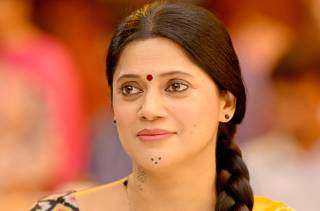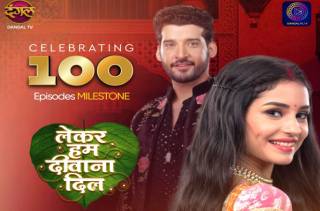
MUMBAI: Actress Charrul Malik, who has also been a journalist before she became an actor, says that the role of TV has drastically changed in our lives. She adds that TV is a guiding force today.
“I believe Television Day is significant as it recognises and appreciates the value of television in our lives. Television plays a crucial role in educating, guiding, and shaping public opinion. As someone involved in the media industry, especially in news broadcasting, I understand the responsibility we carry. On Television Day, it is important to acknowledge the role of news channels in delivering information. We, as part of the news fraternity, play a vital role in presenting content that educates and influences public opinion. It is our duty to carefully select and broadcast content that is informative, unbiased, and appropriate. Television serves as a medium through which we direct and guide people, making it essential for us to provide the best and most responsible coverage. Therefore, on this occasion, I recognize the impact television has on society and reiterate our commitment to delivering news that is reliable and impartial,” she says.
The TV industry has changed over the years," she says, adding, "I've noticed significant shifts in the TV industry, particularly in the content being aired. In the past, TV primarily consisted of news and general entertainment channels. However, nowadays, the landscape has evolved, especially with the emergence of channels targeting the next generation. This shift is apparent in the variety of programs and content being produced. However, with this expansion, there's a concern about certain programs crossing lines and pushing boundaries. It's crucial to address this issue, particularly concerning content that may not be suitable for a broader audience. One suggestion is to implement proper content certification, similar to what we have in films. This could have a positive impact on TV, ensuring that the content aligns with specific age groups. Given the numerous channels available today, such as Tata Sky and other options, it's essential to consider the diverse audience and cater to their preferences. The changes in the TV industry are evident not only in the increased number of channels but also in the content they broadcast. It's no longer confined to a limited selection; instead, there's a broad spectrum of choices. While this diversity is positive, it's equally important to maintain standards and be mindful of the impact certain content can have, especially when compared to the influence of movies in theaters.
TV has got competition from OTT, she says, adding, “Even though there's increasing competition from OTT platforms, I distinguish between TV and OTT. TV is television, and OTT stands for over the top. Both have their unique vision, but their viewership differs. While the content might be similar, the experience of changing channels with a remote and navigating through different shows on TV is distinct. Despite the rise of OTT platforms, TV remains a constant for me, offering a familiar and accessible source of entertainment.”
She loves working in the TV industry. “I am extremely proud of two aspects of my life within the television industry. Firstly, I am proud that I was a part of a news channel, where I served as an anchor, editor, and journalist, contributing to the news content. Secondly, I am equally proud to be involved in Bhabhiji Ghar Par hai, which adds another dimension to my TV career. This show, being a part of a general entertainment channel, allows me to engage with a different audience through a distinct form of content. I find fulfilment in both roles, as they offer diverse experiences. Conducting interviews, whether for news or entertainment, provides me with the opportunity to connect with various personalities and share their stories. The richness of these experiences has made me appreciate and feel blessed to be a part of both sides of the television spectrum,” she says.

















Add new comment